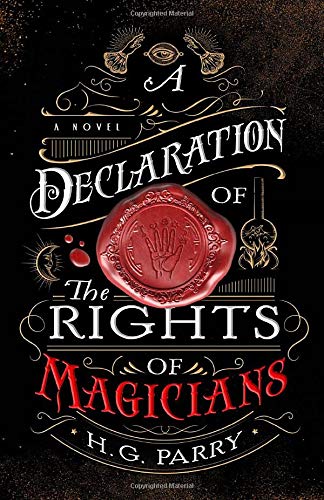A Declaration of the Rights of Magicians (The Shadow Histories 1)
The concept of this ambitious fantasy historical works neatly: substitute “magic” for “freedom,” and the French Revolution and the Abolition movement in England dovetail with a sprawling epic about the struggles of magicians to use abilities that are only allowed to aristocrats in this version of the 18th century. Parry imagines historical figures William Pitt, Maximilien Robespierre, William Wilberforce, and Camille Desmoulins as tireless advocates for the rights of commoners to use the magical skills acquired genetically, but restricted through a system of childhood testing and shock bracelets administered by the Knights Templar. Magic in this alternate reality has been thus controlled since the 14th century, when the “Vampire Wars” threatened to destroy Europe.
The four main characters, plus Fina, a resourceful African woman enslaved in Jamaica and awakening to her own power during the events of Toussaint L’Ouverture’s revolt in Haiti, are all intensely moral, thoughtful figures struggling to manage the tides of Revolution. Robespierre and Pitt, however, harbor secret abilities that are being exploited by a shadowy supernatural figure haunting their dreams and urging them toward more destructive policies.
If this sounds like a lot, it is. The narrative limps under the weight of its own complexity, and characterization suffers as a result. The lack of female characters (aside from Fina, who only comes into her own in the last third of the novel) to balance the emphatically Platonic friendships of the four protagonists makes it difficult to become emotionally involved. Parry’s style is clear and natural, and her world-building is a marvel of historical adaptation, so perhaps a stronger editing hand would have been useful. The novel ends with the closing days of the Terror, but the underlying conflict with the malign figure behind Robespierre’s destructive reign is still to come, so at least another volume is forthcoming.










